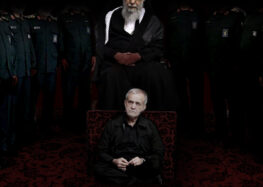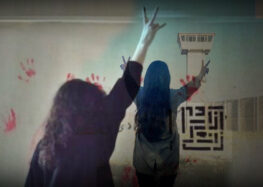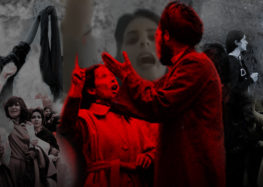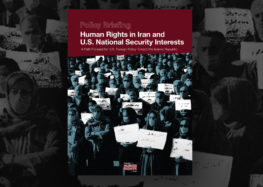Iran Should Immediately Release Critically Ill Opposition Leaders Under House Arrest
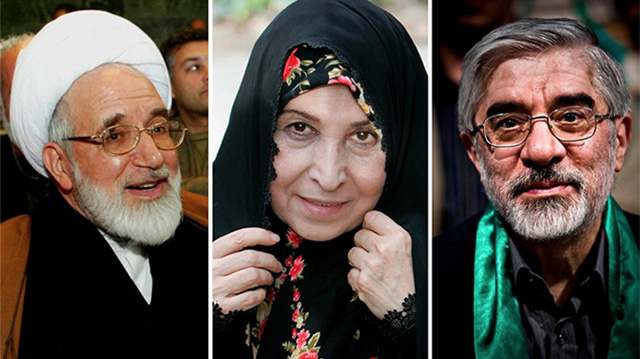
Karroubi and Mousavi’s Health in Peril After Six Years of Forced Isolation
August 2, 2017—More than six years into their extrajudicial house arrest, the health of leading Iranian political opposition leaders is in grave danger, renewing urgent calls in Iran for their freedom.
The Iranian authorities should immediately release and provide full medical care to Mehdi Karroubi, who was recently hospitalized, Mir Hossein Mousavi and Zahra Rahnavard, the Center for Human Rights in Iran (CHRI) said in a statement today. The three have been imprisoned in their homes without trial since 2011 for leading the peaceful protests against the 2009 presidential election.
“The Iranian state thought it could silence Karroubi, Mousavi and Rahnavard by isolating them from society, but it can’t silence the public’s demands for their release,” said CHRI’s Executive Director Hadi Ghaemi.
“President Hassan Rouhani was re-elected on a platform of improving human rights, with the release of these three leaders at the forefront of the people’s demands,” added Ghaemi. “Rouhani should explicitly call for the opposition leaders’ release when he is inaugurated on August 3.”
Former presidential candidate Mehdi Karroubi, 79, was taken to a hospital in Tehran on July 24 for low blood pressure. Two days after he was admitted, he underwent a TIPS procedure that corrected a vein blockage, according to his son, Hossein Karroubi.
He was discharged on July 28, but within hours his condition took a turn for the worse and he was taken back to the hospital where he received an angiography on July 31.
Mousavi, 75, who like Karroubi ran for president in 2009, is also in a deteriorating health situation, according to his family.
“We have no good news to report from our meeting, tweeted his daughter, Zahra, on August 2. “Only unkept promises [from the authorities], signs of my father’s critical health, without knowing what is happening.”
Crowds chanted slogans for the opposition leaders to be released during many of Rouhani’s campaign rallies in 2013 and again in 2017.
“We state unequivocally that alongside the person of the supreme leader and the broken judiciary, the president and the intelligence minister are directly responsible for the lives of those under house arrest,” said a statement issued by Karroubi’s family on July 31.
The statement added that an agent of the Intelligence Ministry has been harassing the elderly opposition leaders.
“[The Rouhani government] has a duty to respond to the illegal and inhumane actions by its agents,” said the statement.
Karroubi’s hospitalization was met with an outpouring of support by members of Iran’s Parliament, former political prisoners and on social media, where many among Iran’s citizenry renewed their calls for an end to the house arrests of the opposition leaders.
“Mr. Karroubi’s heart disease and his transfer to the hospital is a good opportunity to use some wisdom to end this tragic house arrest saga,” tweeted conservative MP Ali Motahari, a longtime supporter of freeing the opposition leaders, on July 24.
Several reformist MPs were not allowed to visit Karroubi in the hospital. Defying the state ban on visiting him, prominent activists brought flowers to Karroubi, which they were forced to leave with a guard.
Supreme Leader Ali Khamenei has long insisted that the three must “apologize” for their role in the peaceful mass protests of 2009, which were violently repressed by the state, before they can go free.
“The door is open (for a resolution). The Supreme Leader has not declared any solution impossible” said Rouhani government spokesman Mohammad Bagher Nobakht on August 1 after Iran’s health minister said he was personally checking in on Karroubi and Mousavi.
“The authorities should recognize that the death of any of these leaders will not solve their problem; rather it may precipitate another national crisis,” said Ghaemi. “It is in the national interest of the country to prevent this crisis and release them.”

